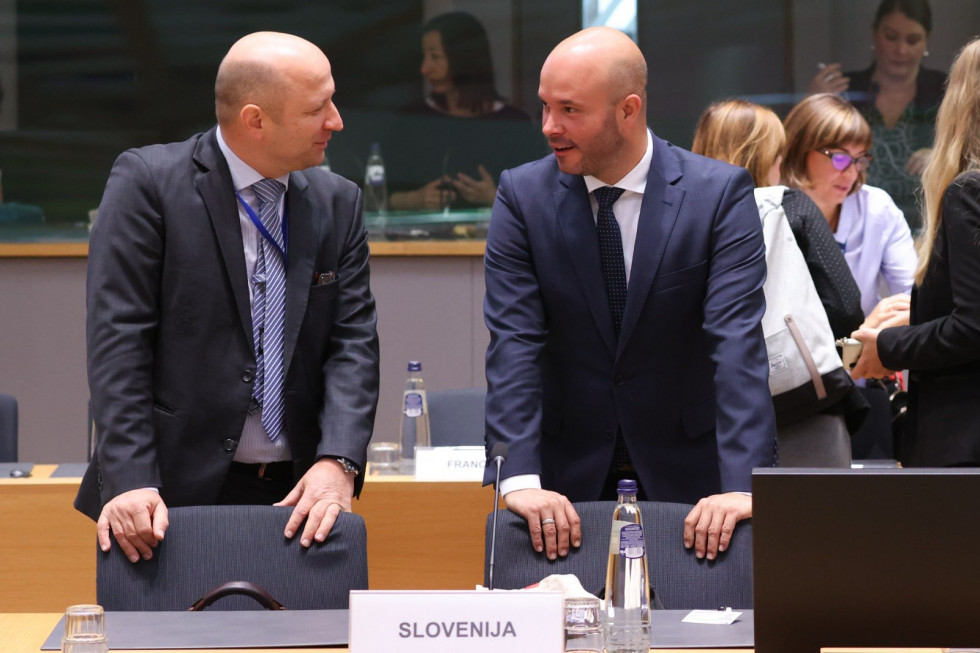Slovenia in Brussels decisively advocates that the public intervention regarding sustainable energy prices is also permissible for industry
- Ministry of Economic Development and Technology
- Permanent Representation to the European Union Brussels

Deputy Permanent Representative of the Republic of Slovenia to the EU David Brozina and State Secretary Matevž Frangež at the EU Council meeting | Author Ministry of Economic Development and Technology
This will enable EU to respond more efficiently to complex crises, anticipate them better and prepare measures in advance in order to enable a free movement of persons, products and raw materials in all conditions.
Within the EU’s further response to the energy crisis, State Secretary Frangež argued in favour of the public intervention regarding energy prices to be also permissible for industry or large enterprises and not only for small and medium-sized companies. "Slovenia is one of the most industrialised countries in the EU and has a high proportion of energy-intensive industry that was severely affected in this crisis. This industry is crucial for functioning of the European chains that require materials such as aluminium, steel, glass, magnets and paper," Frangež highlighted.
In a discussion regarding a new crisis instrument for the protection of the internal market, Frangež supported, on behalf of Slovenia, the intention to equip the EU with mechanisms for predicting and acting in new crises. "The European Union needs tools for prompt reaction to complex crises, and the idea of solidarity is crucial for the prevention of protectionist closing of borders," highlighted State Secretary Frangež and also pointed to the urgency of a balance between the responsibility of the European Commission on the one hand and that of the Member States on the other. The crisis management as per the regulation presented by the European Commission would take place in three phases: the emergency situations planning phase, the attention phase and the emergency situation phase, with a selection of measures anticipated for each phase. As this is an early stage of discussing the proposal, the Member States have anticipated its in-depth examination and constructive cooperation during harmonisation.
Slovenia also supported the Ecodesign Directive, the purpose of which is to expand the possibilities for recycling, reuse and longer product life cycles by means of a digital passport for products and improve the traceability of sustainable origin of products and the raw materials necessary for their manufacture. Frangež emphasised that it is "necessary to elaborate on the design of ecodesign," as it is critical that the system is simple, digital and accessible due to the large number of stakeholders, and additionally adjusted to the abilities of small and medium-sized companies. As well as a number of other Member States, Slovenia is concerned about the additional administrative burdens and the impact of the Directive on competitiveness. The proposed Directive determines the obligations for a design of products that would have a lesser impact on the environment and climate. It further improves the dissemination of information on product durability for consumers and actors in the supply chain and promotes sustainable business models and green public procurements.
Slovenia also supported the German initiative to form a joint European platform for transformative technologies intended to establish responsive industrial ecosystems for renewable energy sources and the French and German initiative for a better supply system of critical raw materials. All participating Member States expressed their support for both initiatives and announced their participation

